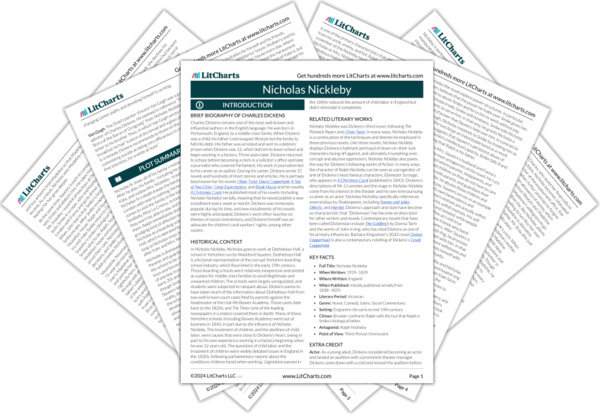Again, while the Squeerses are intent on making Nicholas an enemy, Nicholas is intent on finding friends. Unlike the Squeerses, Nicholas treats Smike with kindness and respect, a stark contrast to the Squeerses’ violent abuse. Nicholas again reckons with questions of complicity in wrongdoing when he wonders if his presence is exacerbating Smike’s suffering.
